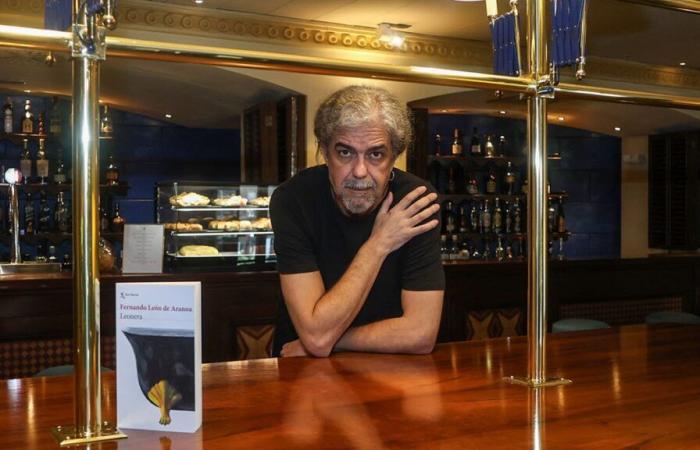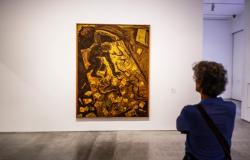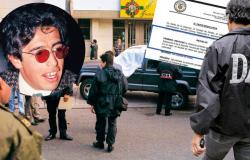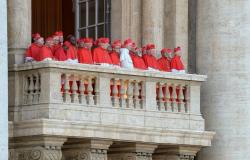The first movie he directed served him to win his First Goya in the category for best novel direction, and from there it has been accumulating up to seven statuettes. Director and screenwriter of essential films of Spanish cinema as “The good employer”, “Mondays in the sun”, or “Princesses”Fernando León de Aranoa Publica now “Leonera”a collection of stories that collects its way of looking at reality and implicit contradictions of the human soul.
The books of the book deal with friendship, love, their opposites, the passage of time, and of course fictionof which León de Aranoa confesses that it is the theme he likes most. We talked to the director of his latest book in Aragonpress.
ASK.- Where do all these writings come from?
ANSWER.- Well … from the Leonera, of my head, of the disorder that I wear. It’s a Creative disorderabove all. I mean that I dedicate most of my time to movies; That is my main occupation. And in addition, it is an occupation that demands a lot of time and a lot of commitment to a single story. In the end, making a movie takes you two years, when not four.
These writings arise especially by the need to work in another formatotherwise faster. They are short stories and many of them have to do with my perceptions of reality, of what happens around me, what happens to nearby people or even me. I think they leave there, from the desire to tell that, to find other ways of looking at the everyday, the real, in a more surprised way And give them that form of short stories, which for me is also very enjoyable, precisely because it is a form of work very different from that of cinema.
P.- When writing them, did you already think they were going to be stories?
R.– By their very nature, from the moment they arise, they are already stories and I know they will be brief. None of them arise with the idea of being a story of eight or nine pages with narrative structure. They don’t have that vocation. They are almost like Reflections or rapid approaches to something that interests me or worries me. But yes, they have that vocation of short stories. I also think from the beginning that they will end up being a book, partly because I had already published one twelve years ago, “Dragons lie here”that worked the same format of short stories. Then I had that experience, I kept doing it and when I was collecting them, many times I thought that at some point they would form another book.
“I am aware that any proposal of order is an invitation to disorder”
P.- Is there any conductive thread in “Leonera”?
R.- In this case, there are 100 or 100 and peak stories, and I believe that the unit is more theme and formal than narrative. Thematically, book seven or eight important themes of life are going through book: friendship, love, their opposites, the passage of time, and also fictionwhich is one of the issues that interest me the most. There is a certain elaboration about that: what stories are for, what differentiates them from memories …
So the proposal is more a thematic tour. And then, when ordering the stories to give them their final form, I tried that this trip for the reader was consistent. There is a proposed order, with a gateway to the labyrinth and one of departure. But I am also aware that any proposal of order is an invitation to disorder. It is very easy for someone to open the book and read a loose story. It is not what I recommend, but I am subjected to the reader’s will.
P.- For example, the first story goes to the parks. It is like a transportation to childhood, and then the route continues.
R.- And the last one is about the farewellwhich is also a story that deals with that, a kind of deaf reflection on what is happening at that moment of the book. He talks about someone who has trouble saying goodbye. I explain that in the story: it is difficult for me to say goodbye, so I also find it hard to close the book, and that’s why I choose that story for the end.
P.- He has written and directed very important films of the Spanish audiovisual sector. What is the biggest difference between making movies and writing literature?
R.- For me it is a very big difference. When I write narrative I do not conceive it as an extension of my work as a filmmaker. Precisely I do it to do something very different, with very different tools. It’s like changing play patio. In the stories I look for another way to relate to reality and, above all, other tools to do so.
As for the trade, the big difference is in the dedication of time. Making cinema takes you three or four years. It is a strong commitment to a story. With the stories, The commitment is equally strong, but at another level. What I enjoy most is the short route, working near the moment of invention. Between the idea and the result there is less distance and that makes the result very connected to the idea and with the author. It is more intuitive, cooler, more direct.
P.- Has your audiovisual experience helped you write these stories?
R.- I guess yes, although I had never raised it. In the end there is something in common: Exercise the look. I refer to the perception of things, to which you are interested in or you make curiosity. That happens in both lands. I suppose having done it for years in the cinema generates a habit, but I hope it is a habit and not a mechanization. Because that would be uninteresting.
“As if writing were a crime and you will leave your fingerprint unintentionally”
P.- Is there a story that is your favorite or that has marked you especially when writing it?
R.- Some stories like more for different reasons. I really like those who reflect on fiction, about the trade, because fiction interests me a lot. There is one who talks about how the author is always present in what he writes, even if he doesn’t want to. As if writing were a crime and leave your fingerprint unintentionally. I like that for its simplicity.
Another is called “Materia”, And talk about how we write more our desires and fears weigh more than what we really are. One expresses more what is afraid to be or wants to be, than what it is. That engine seems real to me.
P.- Has any of these stories serve as inspiration for any project that has in mind?
R.- No, notice not. It responds a lot to what I told you at the beginning. It is such a different field for me from cinema, that I do not associate it. Perhaps, if I start thinking, there are four or five that could develop cinematographically, but I could not even say which ones. I feel it is another land, and they don’t have that bridge. They are not cinematographic, I intend to be literary. They are different things, just as interesting, but different.






